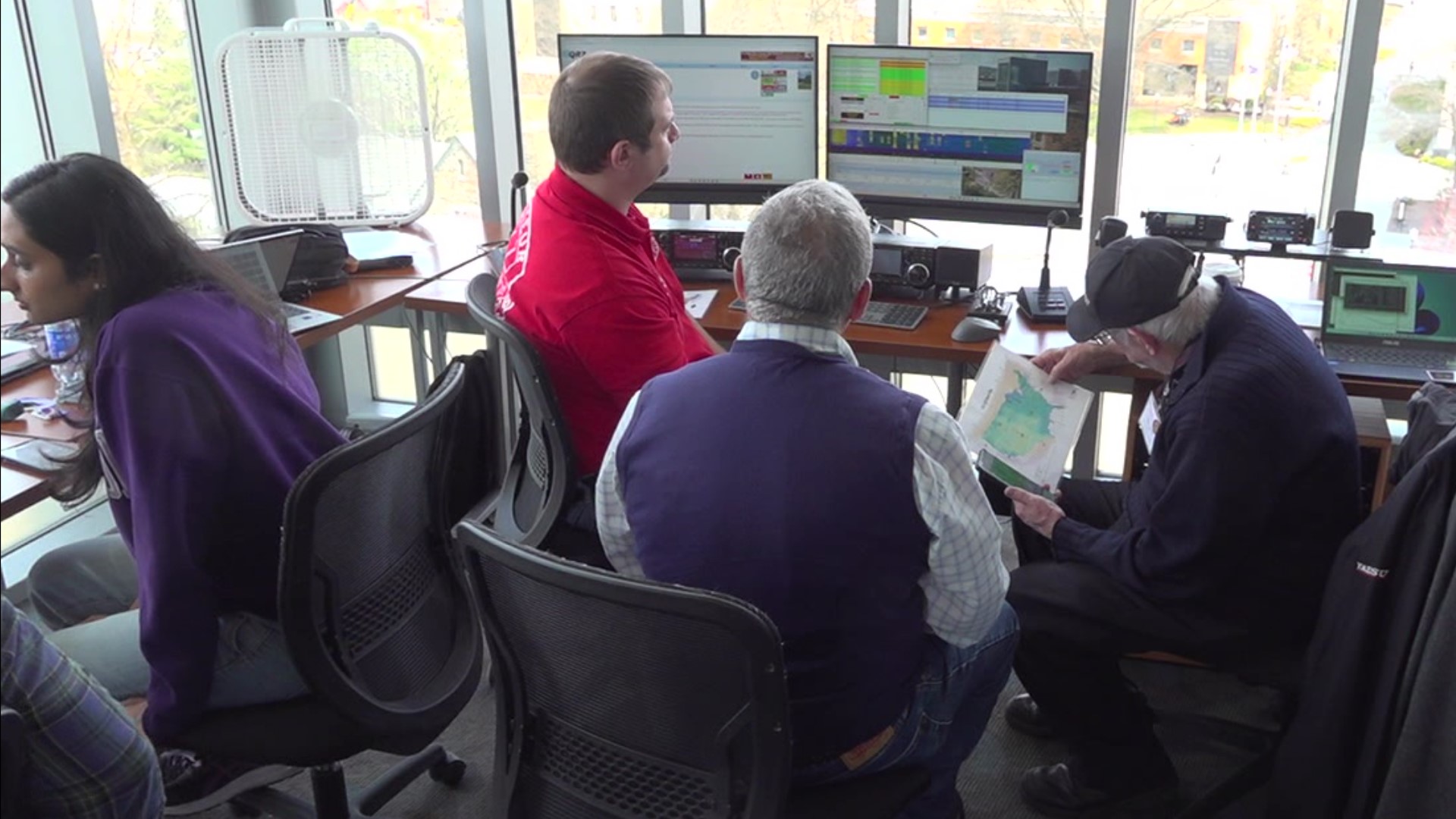SCRANTON, Pa. — Preparing for the solar eclipse was an all-day affair at the University of Scranton on Monday.
While some students were just watching, others were working hard on research.
"We are looking to see how this particular eclipse affects the ionosphere in the upper atmosphere. Every eclipse is a little bit different going through a different path," explained Nathaniel Frissell, a professor of physics and engineering at the university.
Prof. Frissell says this research has been years in the making.
Last fall, the university installed a tower to get a student ham radio station up and running at the Loyola Science Center. Students and other community members are able to connect with people across the country and the world.
"When the eclipse comes through, it cuts off the sun and that photoionization. So now the radio waves aren't bent the same way, so when you receive the signals on the other end, or you don't get the signals on the other end, that can be attributed back to the eclipse," said Prof. Frissell.
"Research like this is important because if we can understand how radio propagation works, we can be better suited in cases of emergency where processes like phone lines or other emergency communication wouldn't work," said junior Alexanderos Papadopoulos.
Students spent all day in the ham radio station since other parts of the world experienced the eclipse long before the eclipse reached our area.
The university was one of five chosen as part of a Citizens Science Project with NASA.
Through this research, students are helping to document history.
"It's a pretty cool experience, the environment, the people around. It's just interesting to see how it all plays out," said junior James Hankee.
"It feels pretty great knowing that we're at the front of this, and I did not expect to have this great opportunity when I first came to campus," said junior Gerard Piccini.
Students will now spend their time breaking down all of the data collected.

